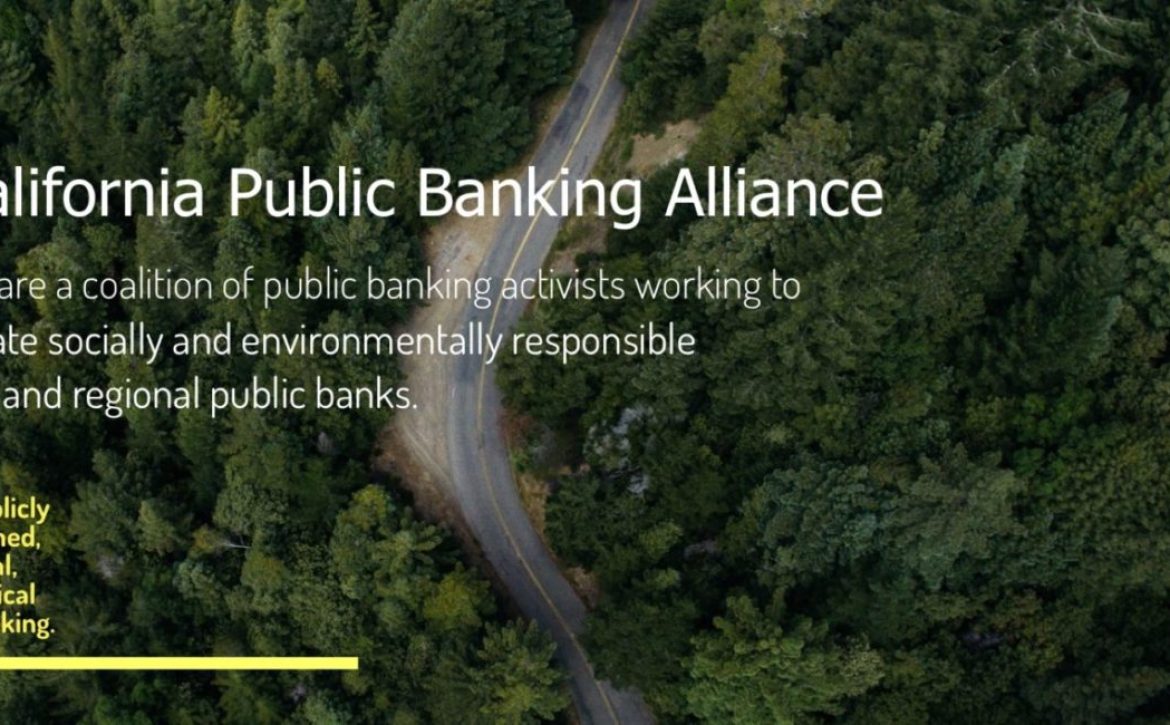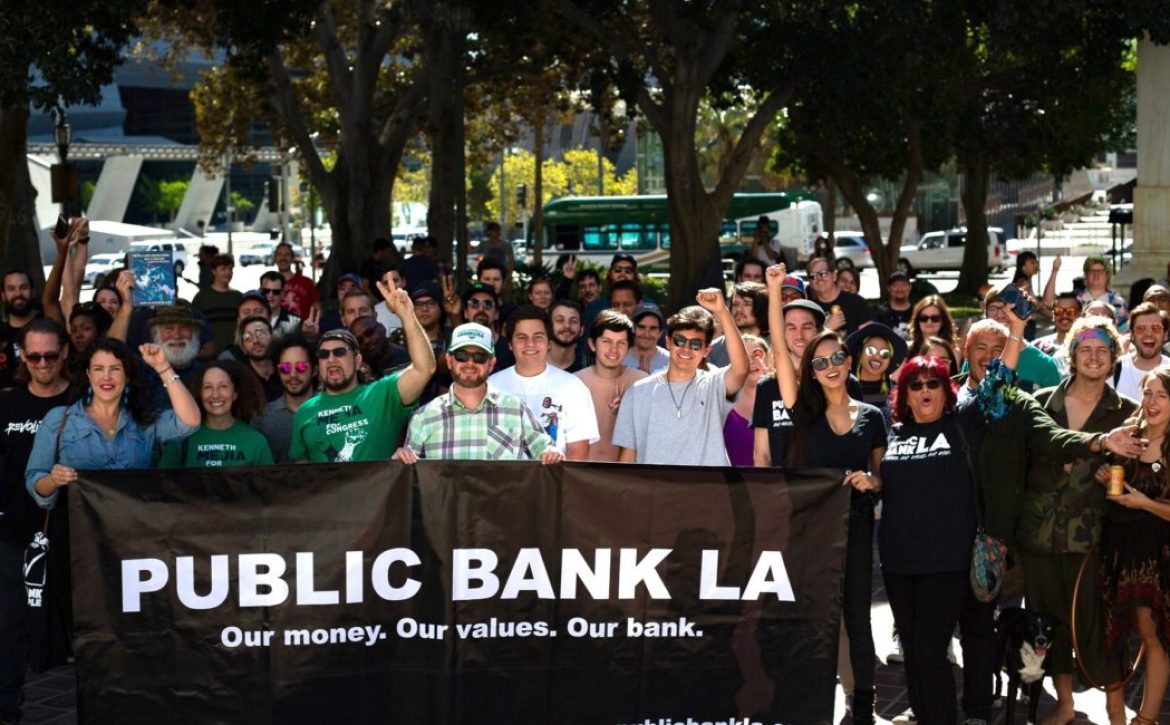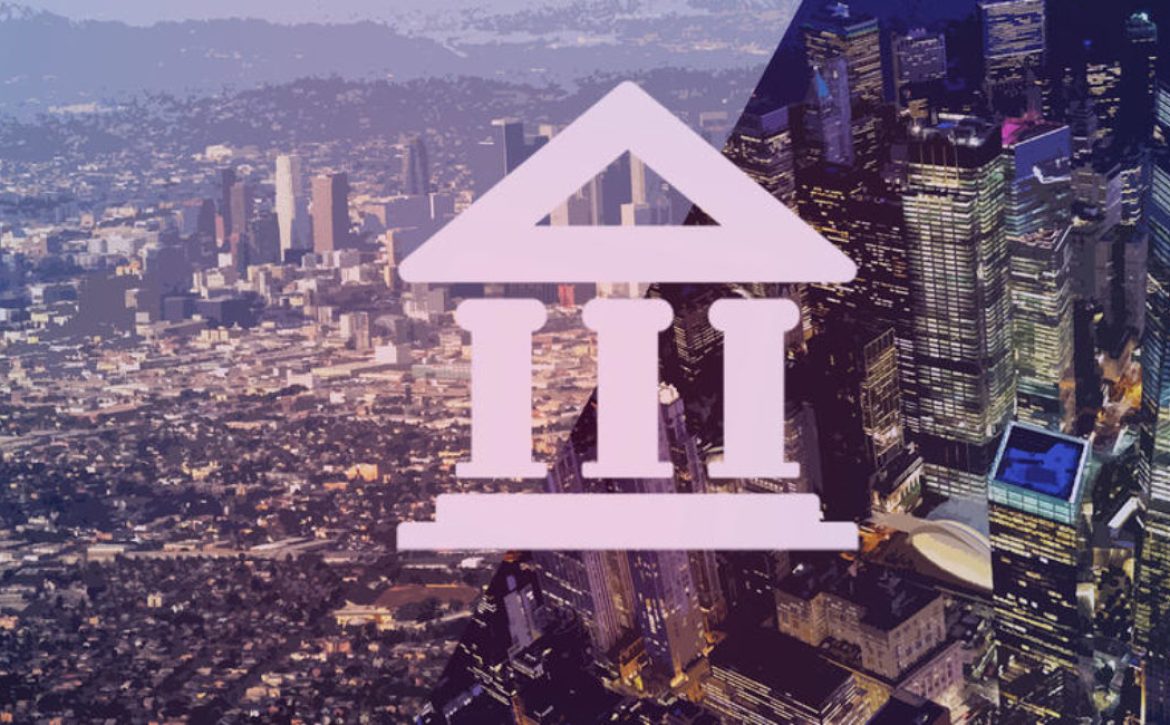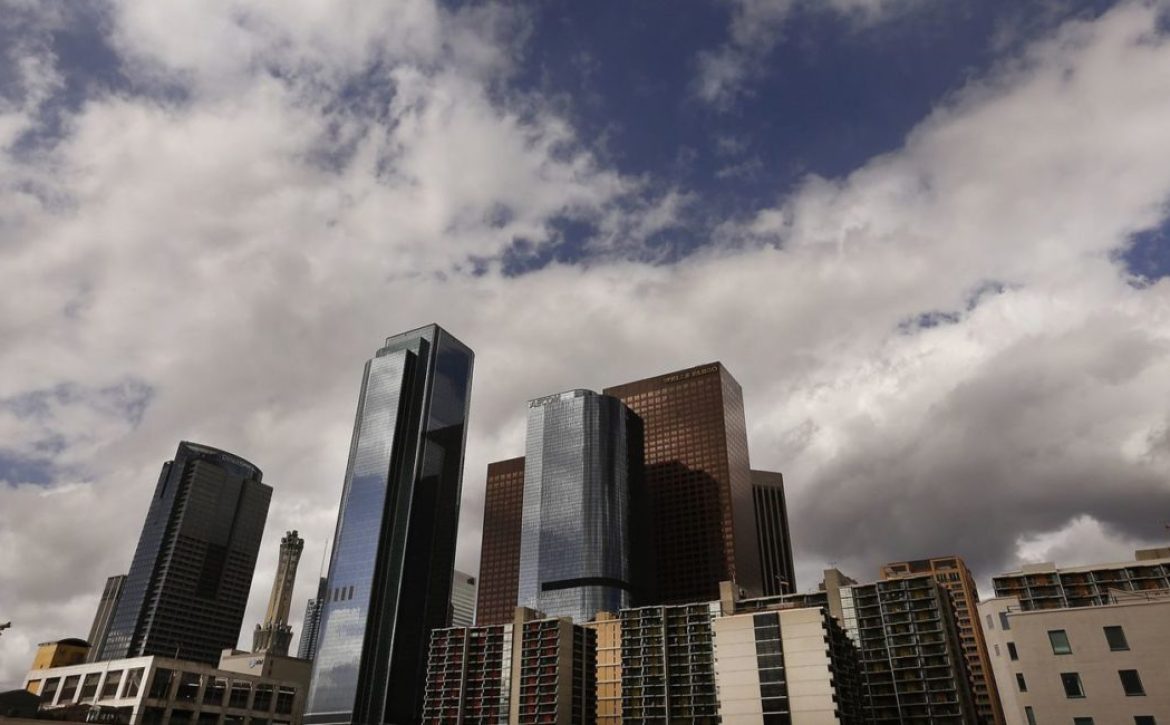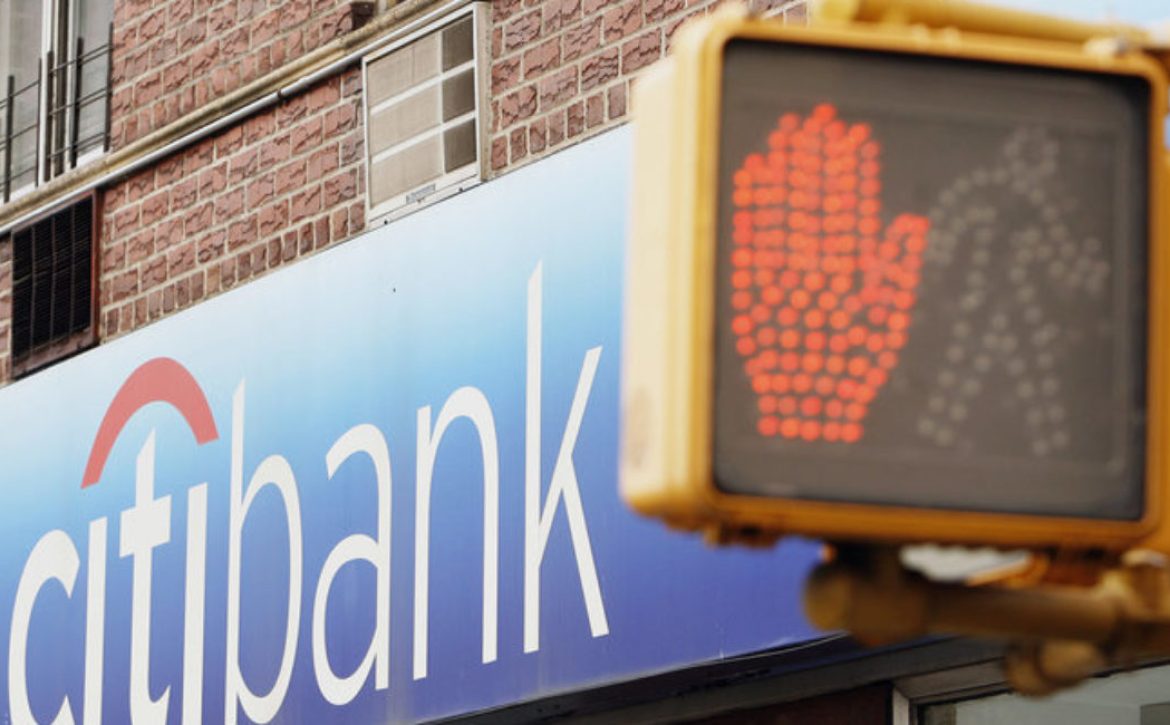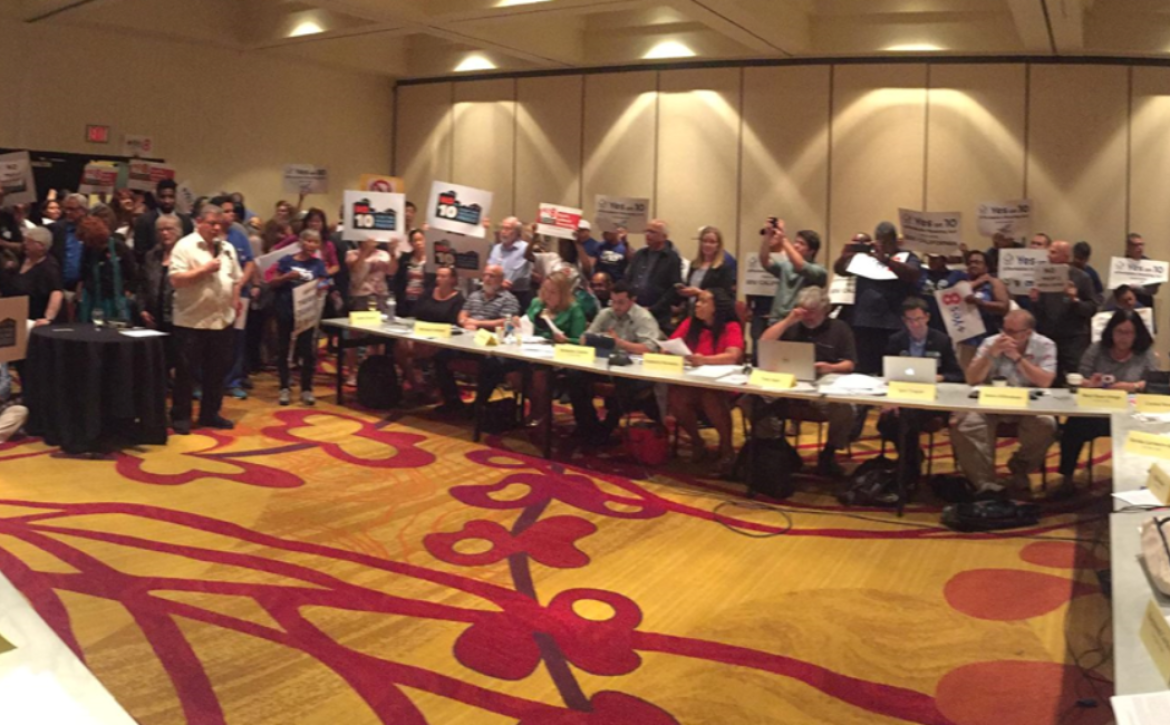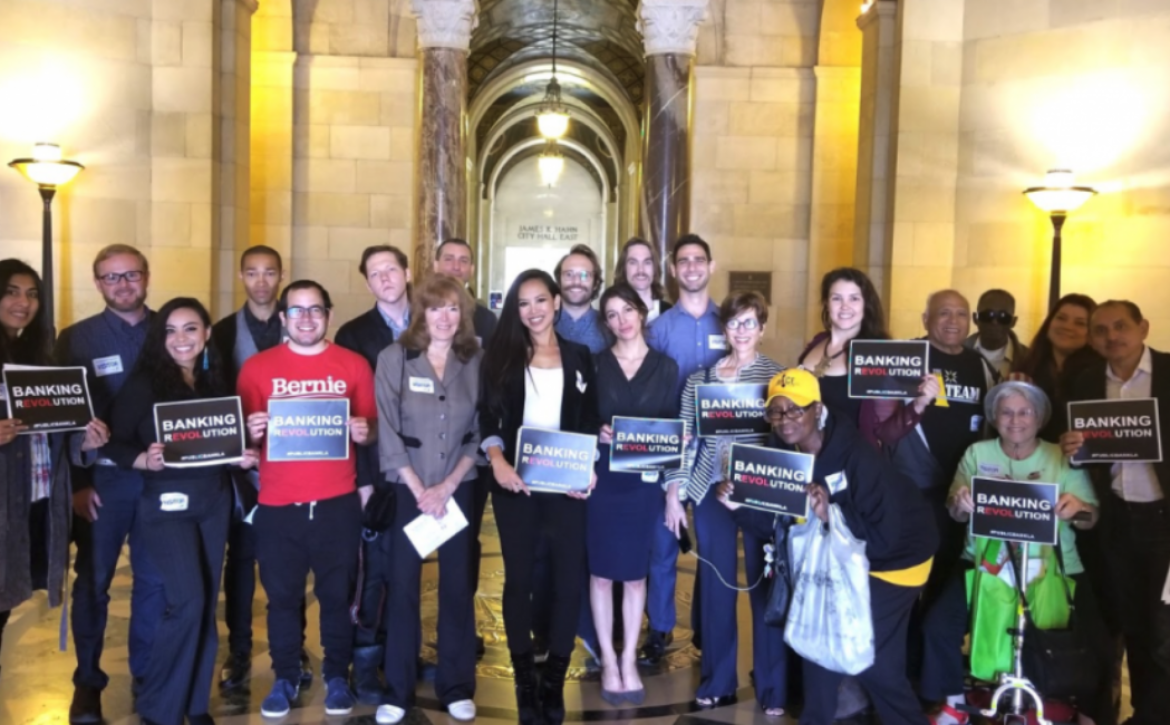On November 6, responsible and sustainable economics was on the ballot in Los Angeles in the form of Measure B. Measure B was arguably one of the most important midterm ballot items in the country. For the first time in ninety-nine years, voters had the opportunity to approve by referendum a measure in support of public banking. Without funding, and virtually without precedent, Measure B was the first time many voters had even heard of public banking.
The last time a public bank was on the ballot, it was 1919 and in North Dakota, when 61,495 voters established the only other public bank in the history of our fifty states. Ninety-nine years later, thanks to the laudable efforts of a small group of unfunded activists, the success of the Bank of North Dakota, and the growing need for a common sense and bipartisan solution to the financial crisis, public banking was finally up for a vote again.
This time, over a quarter of a million Angelenos gave their thumbs up, garnering over 43% of the vote in favor of this little-known strategy for local governments to recapture wealth and reinvest it in the community. That is why the public banking movement is celebrating a growing momentum of support. The reality of instituting a bank supportive of people and the planet is becoming ever more tangible.
Put on the ballot through a 12–0 vote of the LA City Council, Measure B was designed to simply add an amendment to the city’s charter, allowing the city to form a financial institution, which may have been considered a commercial or industrial enterprise. This amendment was proposed in part to overcome possible barriers due to legal interpretation of the charter, and in large part, to determine a baseline of public interest and support.
Considering the lack of preparation and financial support for a proper public education campaign, such a high number of votes in support of Measure B bespeaks a community galvanized by a banking concept that finally makes sense.
So, if any Angelenos who voted yes on Measure B felt disappointed with its defeat, take heart and stay tuned: the idea of public banking is on the rise.
What’s next? Public banking advocates such as those representing the California Public Banking Alliance are working to remove statutory barriers and facilitate the path forward with state legislation. California Governor-Elect Gavin Newsom, and Treasurer-Elect Fiona Ma have both voiced their support for public banks. With several cities across the nation completing feasibility studies and support building across the political divide, public banking offers too many solutions to ignore.
While in California, the powerful cannabis plant may be responsible for bringing much needed attention to the complicated and contentious issue of banking, it isn’t the only reason to create a bank with more local control. Here are some of the top reasons to get excited about the public banking solution:
1.) Public banks save local governments a lot of money. Last year, the city of Los Angeles paid $170 million in banking fees and $1.1 billion in interest to big banks and investors. Interest alone accounts for 50% of the cost of infrastructure projects, an enormous cost that could be avoided by financing through a public bank.
2.) Public banks tend to be safer and more profitable. With a nearly 17% return on investment, the Bank of North Dakota (BND) is more profitable than Goldman Sachs, with a better credit rating than JPMorgan Chase. In 2008, when economies around the country were shrinking, North Dakota’s grew 7.3%. This is in part due to the state’s expenses running through BND, and BND’s partnerships with local community banks and credit unions.
3.) Public banking can help solve inequality. With 82% of wealth created in 2017 going to 1% of the population, it is clear there are some major design flaws in our financial system. Public Banking is one way to recapture and recirculate wealth, and to end the extractive functions of the existing banking model.
4.) Public bank charters put local people and environments first. North Dakota’s governor, John Hoeven, the nation’s longest-serving governor, attributes the state’s success to a results and customer service oriented economic development plan, supported by the state’s public bank charter. Unlike large private banks, which engage in high-risk financial schemes and are required to prioritize profits, public banks can be obligated to put people and planet first.
5.) Investing in community development creates virtuous economic cycles. While our tax dollars are used to keep private banks lucrative, a public bank focuses on the long-term prosperity of its community through loans for low-income housing, green energy infrastructure, co-ops, small businesses, or other locally-determined priorities. A public bank partners with local credit unions and community banks, guaranteeing their loans for locally-directed economic development, public works financing, and jobs creation. The public bank can directly loan money for housing projects below market interest rates; unlike private banks, they won’t be bound by a need to maximize profit margins.
6.) Public banks can support a transition to renewable energy. Saving on the up-front costs of renewable energy infrastructure, public banks create real energy efficiency. The German Sparkassen public banking networks have funded over 70% of investments for renewable energy infrastructure. Renewables are now Germany’s top source of energy, with one-third of electricity derived from sources including wind and solar.
7.) Public banking offers ethical allocation of money. The municipal public banking movement advocates for banks to be chartered with socially and environmentally responsible mandates. This includes a transparent Board of Directors and an anti-corruption ethos to ensure that the bank operates under sustainable and ethical guidelines. The bank’s lending activities would be subject to strict evaluation to determine adherence to its principles and fulfillment of its public policy goals.
8.) Public banking provides local self-determination. A municipal public bank enables the people of the city to recapture public dollars and have a say over the financing of our own community. A public bank maximizes public good within the community rather than maximizing profits with globalized extraction. With municipal revenues and banking profits returned to the public, a public bank could issue loans to benefit the local economy, not private shareholders.
9.) Public banks can serve the unbanked and underbanked, and maximize local revenues. Three out of ten Angelenos have either no access or inadequate access to a checking or savings account and therefore cannot build credit, and are susceptible to theft, fraud, and the predatory practices of financial alternatives such as payday lenders or check cashers. A public bank could help meet the financial needs of the unbanked and underbanked population, largely comprised of minority, working-class communities and immigrant households. A public bank could also provide banking services to the massively growing and unbanked cannabis industry, bringing legitimacy to the finances of this sector.
There are enumerable reasons why a public bank can serve the needs and meet the interests of all citizens, everywhere. This is a solution-oriented way to creating a regenerative economy that is flexible, resilient, diverse, fiscally responsible, humane, peace-generating, and truly profitable.


